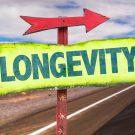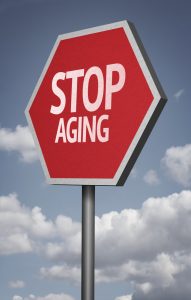The Most Important Secret to Healthy Aging

It is not how old you are but how you are old.
As a Neuroscientist and Epidemiologist I spent over a decade researching the underlying causes of Alzheimer’s disease. But after working with thousands of clients, I now realize that the one single and most important thing you need to prevent aging and cognitive decline isn’t about your habits, your education or your exposures. It is your willingness to release your negative beliefs about aging.
When I talk to the elderly about how Alzheimer’s is reversible, and how there are so many things you can do to keep your brain young, I regularly hear, “Oh…I’m too old for that”. Do you notice the problem with this belief? I do. It indicates to me that the person is saying that they are no longer worth the effort. And that distresses me terribly because I know that this is precisely how they will become old, by giving up.
But what happens if you don’t believe you have to get old?
What I can tell you from my personal experience is that I refuse to get old. In my early 40’s I used to have way less energy and more aches and pains than I do now. Now at 50, I have the metabolic age of a 35-year-old! How? Simple. It started with the decision that getting old is not for me.
Our Beliefs about Aging affect our Health

Research confirms that our beliefs about aging have a huge impact on our health.
One study found that older Americans with negative beliefs about aging were significantly more likely to develop dementia than elderly who embrace their seniority with enthusiasm. This finding remained even after the researchers accounted for other risk factors for dementia, such as smoking, diabetes, and cardiovascular disease.
In addition, the apparent benefits of positivity were even greater among the subgroup of adults whose genes put them at greater risk of dementia. For adults that had the gene associated with sporadic Alzheimer’s, their risk of dementia was 6.1% vs. 4.6% for all participants (with or without the gene). But positive attitudes lowered the risk of dementia to 2.7% for those with the gene, vs. 2.6% without, and there was no statistical difference between those with and without the gene! This is evidence that your beliefs are often more important than your genes in determining your health!
The Effect of Negative Stereotypes on Older Adults
 There is extensive research evidence that negative age stereotypes such as generalized representations of elderly as inactive, unhappy, senile or incompetent, can affect not only the older people’s enjoyment and prosperity in the later stage of their life, but they can also impair the self-image, performance and overall health of older adults.
There is extensive research evidence that negative age stereotypes such as generalized representations of elderly as inactive, unhappy, senile or incompetent, can affect not only the older people’s enjoyment and prosperity in the later stage of their life, but they can also impair the self-image, performance and overall health of older adults.
The research carried out by Becca Levy and colleagues at Yale University found that elderly with negative stereotypes about themselves show less success in handling stress, have lower self-efficacy, and impaired cognitive function. In addition, these individuals are more likely to have a negative view of other seniors. Furthermore, this research found out that negative stereotypes also contribute to serious illnesses and even death.
Quite the opposite, holding positive beliefs about aging has a beneficial impact on the elderly – Levy’s research found that having positive views about aging increased life expectancy by around 7.6 years. This was a significant improvement in comparison to other protective factors, such as low blood pressure, not smoking or getting regular exercise, each which add only one to two years of life expectancy.
Mindset Alone Can Make Us Younger

In 1981, a young professor of psychology at Harvard, Ellen Langer with her colleagues conducted an experiment that involved the two groups of men in their seventies and eighties.
They loaded the men into vans and drove them to an old monastery in New Hampshire, and dropped the men off 22 years earlier, in 1959.
They were surrounded by 1950s issues of Life magazine, the Saturday Evening Post, a vintage radio, and a black-and-white television. They showed movies, news, and sporting events, and discussed the major events, all from that era. One group of participants was asked to pretend that they were young men, living once again in the 1950s, while the second group was instructed to stay in present and simply reminisce about the past.
Before and after the experiment, both groups of participants took a battery of physical and cognitive tests, and after just one week in 1950s setting, there were significant positive changes in both groups.
Both groups were stronger and more flexible. Height, weight, posture, hearing, vision, and even their performance on intelligence tests had improved. Astonishingly, their joints were more flexible, their shoulders wider, their fingers were not only more agile, but longer and less twisted by arthritis.
However, the men who had acted as if they were actually back in the 1950s showed considerably more improvement. Those who had acted younger, seemed to have bodies that actually were younger.
These and many other studies prove that keeping our mind as open as possible, and having a positive attitude towards aging can significantly affect how we age.
Remember – You can’t help getting older. But you don’t have to get old.
 Have you noticed that your beliefs are getting in the way of your ability to stay young? Does the idea of aging feel depressing or burdensome to you? The best way to release these thoughts and feelings is to pull them out from the roots by addressing the epigenetic (inherited) belief systems that perpetuate aging.
Have you noticed that your beliefs are getting in the way of your ability to stay young? Does the idea of aging feel depressing or burdensome to you? The best way to release these thoughts and feelings is to pull them out from the roots by addressing the epigenetic (inherited) belief systems that perpetuate aging.
Are you ready to feel young again? Learn more how I can help you by releasing the accumulated and inherited negative beliefs, the negative emotions and more with the Body Code here. Then contact me here to schedule your complimentary consultation.



